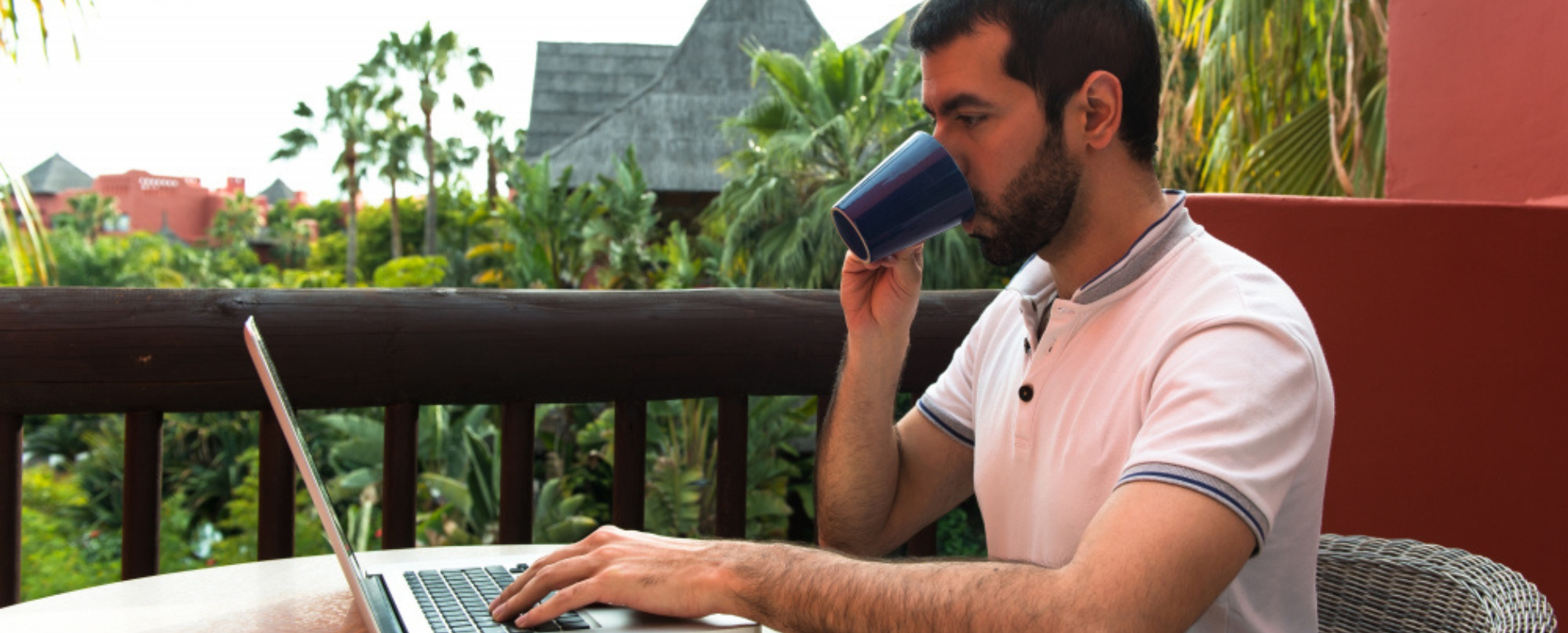For any freelancer-writer, designer, developer-success depends on two fragile ingredients:
- Stability to pay the bills and focus on craft.
- Inspiration to keep the ideas flowing and the portfolio fresh.
Finding a single location that delivers both is tough. Yet over the last decade, one country has quietly ticked every box: Portugal.
From Lisbon’s tiled alleyways to Porto’s riverside warehouses, the nation has evolved into Europe’s unofficial laboratory for remote work and creative living.
If you want to register as a freelancer in Portugal, here is an in‑depth field guide-drawn from on‑the‑ground experience, economic data, and recent policy changes, for freelancers considering the leap.
1. Affordability: Where the Numbers Work in Your Favour
Before you start working in Portugal, consider the potential costs associated with it. Here is a breakdown to help you with that.
1.1 Cost‑of‑Living Snapshot
| Monthly Cost (Single) | Lisbon | Porto | Berlin | Barcelona | New York City |
| Rent (1‑bed, centre) | €1 000 | €850 | €1 400 | €1 350 | €3 300 |
| Utilities & Internet | €120 | €110 | €210 | €190 | €220 |
| Groceries | €210 | €200 | €280 | €270 | €380 |
| Public Transport | €40 | €35 | €86 | €50 | €125 |
| Coffee (cappuccino) | €2.00 | €1.80 | €3.20 | €2.50 | €5.50 |
Takeaway: Even Portugal’s priciest city remains 30–60 % cheaper than major European capitals, and rent runs a third of Manhattan’s.
1.2 Stretching Your Euros
- Quality over Quantity – Local markets sell fresh fish and produce at prices that make meal‑prep a pleasure, not a chore.
- Transportation Passes – Lisbon’s Navegante card (€40) covers metro, tram, commuter rail, and ferry, freeing you from car expenses.
- Healthcare – Public coverage (SNS) is available once you gain residency; private policies start around €50/month.
A single freelancer can live comfortably in Lisbon on €1 900–€2 300/month; a couple in Porto can glide by on €2 500–€3 000 without skimping on weekend getaways.
2. A Built‑In Creative Ecosystem
If you want to register as a freelancer in Portugal, you need to know about how things work here.
2.1 Co‑Working Boom
| Year | Spaces in Lisbon | Spaces in Porto |
| 2015 | 12 | 5 |
| 2019 | 34 | 14 |
| 2025 | 60+ | 28 |
Second Home (inside the historic Time Out Market) hosts book launches under a rainforest of hanging plants. Porto i/o runs hack nights overlooking the Douro River.
Many venues operate 24/7 and bundle networking events, legal clinics, and mental‑health coaching into one membership.
2.2 Café Culture as a Workflow
A €2 bica espresso buys hours at a marble‑topped table. Staff rarely rush patrons, and most cafés provide outlets and 100 Mbps Wi‑Fi by default. Iconic venues include:
- Fábrica Coffee Roasters, Lisbon – open at 8 a.m. for early‑bird coders.
- Combi Coffee, Porto – latte art meets indie vinyl playlists.
- Nicolau, Lisboa – a brunch and brainstorming hub for UX designers.
2.3 Events Calendar
- Web Summit (Lisbon, November) – 70,000 techies.
- Porto Design Biennale (even years) – global studios exhibit experimental typography.
- Festa de São João (Porto, June 23) – street parties light creative sparks until dawn.
3. Visas & Residency: How to Stay Longer Than 90 Days
If you plan to stay for more than 30 days, you will need assistance with your visa. Here is everything you should know.
Headline resource: Portugal Golden Visa
3.1 Quick‑Compare Table
| Route | Income / Investment | Physical‑Presence Rule | Family Reunification | Path to Citizenship |
| Schengen Tourist | – | 90/180 days | ✖ | ✖ |
| D7 Passive‑Income | ≥ €870/month + savings | ~6 months/yr | ✔ | 5 yrs |
| D8 Digital Nomad | ≥ €3 300/month remote | The majority of each year | ✔ | 5 yrs |
| Golden Visa | €250k–€500k+ approved funds, R&D or culture | 7 days/yr | ✔ | 5 yrs |
| Startup Visa / D2 | Feasible business plan & capital | Must operate locally | ✔ | 5 yrs |
3.2 Tax Landscape in 2025
- The popular NHR regime closed to newcomers in 2024.
- A new “Talent Tax Incentive” offers a 50 % income‑tax reduction for five years to professionals in R&D, tech, and cultural sectors.
- Capital gains from crypto held for>365 days remain untaxed.
4. Neighborhood Guide If You Want To Register As A Freelancer In Portugal: Where To Put Down Roots
| City / District | Vibe | Typical Rent | Why Creatives Love It |
| Alcântara (Lisbon) | Industrial‑chic, LX Factory hub | €1 100 | Loft studios, pop‑up galleries |
| Cais do Sodré (Lisbon) | Nightlife + waterfront | €1 250 | Music venues, pink‑street cafes |
| Cedofeita (Porto) | Indie Arts Quarter | €850 | Cheap studios, art‑supply shops |
| Foz do Douro (Porto) | Upscale seaside | €1 200 | Beach walks, sunset bars |
| Ericeira | Surf town, 40 min from Lisbon | €900 | Wave breaks, yoga barns |
| Lagos (Algarve) | Tourist‑meets‑nomad | €800 | Winter sun, cliff‑top hikes |
| Braga | Student city, Roman ruins | €650 | Low prices, startup incubators |
| Coimbra | University town | €600 | Literary cafés, classical concerts |
5. Sample Monthly Budget (Lisbon, Single Freelancer)
| Category | € | Notes |
| Rent (studio) | 1 000 | Central but not a tourist zone |
| Utilities & Internet | 120 | 1 Gbps fibre common |
| Groceries | 220 | Mix of markets & supermarkets |
| Dining & Coffee | 180 | 3 café days/week + 2 dinners out |
| Public Transport | 40 | Navegante Metropolitano pass |
| Co‑Working | 150 | Hot‑desk plan |
| Health Insurance | 60 | Private, no deductible |
| Phone Plan | 15 | 10 GB of data |
| Entertainment / Travel | 120 | Cinema, museum, and a regional train trip |
| Total | €1 905 |
Add €300–€400 cushion for savings and the occasional weekend in the Azores.
6. Voices from the Ground
“Lisbon combines the creative buzz of Berlin with the climate of Barcelona-yet my overhead is half of what it was back home in Vancouver.”
– Sam, travel journalist, D8 visa holder
“In Porto I finish edits by 4 p.m., grab a €1.50 vinho verde, and watch the river turn gold. That rhythm changed how I write.”
– Alina, novelist, D7 visa
“The Golden Visa gave me freedom: I invested in a cultural‑heritage fund, stay two weeks a year, and rent the apartment to fellow filmmakers the rest of the time.”
– Kai, documentary producer
7. Logistics Checklist
- Secure the NIF – Obtain online via a fiscal rep or in‑person at the Finanças office.
- Open a Bank Account – Millennium bcp and ActivoBank have English apps; bring a passport + NIF.
- Pick a Healthcare Path – Public SNS registration upon residency; supplemental private plan advised.
- Register Address – Required for residency renewal and local services.
- Enroll with Social Security (if billing Portuguese clients) – Flat 21.4 % self‑employment rate.
- Learn Basic Portuguese – A2 level helps with leases, doctors, and friendships.
- Set Up Workspace – Hot‑desk membership or a €50 café pass (many offer prepaid plans).
8. Lifestyle Perks (and a Few Pitfalls)
| Perk | Why It Matters |
| 300 + Sunny Days (Algarve) | Natural antidepressant; consistent natural light |
| Safest Country #7 (Global Peace Index) | Work late with peace of mind |
| Reliable Fibre Net | 200 Mbps is standard; 1 Gbps in cities |
| Schengen Basecamp | Two‑hour flights to 24 EU capitals |
| Vibrant Food Culture | €10 set lunches, Michelin options for splurges |
Challenges:
- Rising rents in Lisbon’s historic core can be mitigated by eyeing up‑and‑coming zones (Arroios, Anjos) or satellite towns (Almada, Barreiro).
- Bureaucracy can be slow. Hire a local lawyer for visa filings, and scan all receipts for tax season.
- Portuguese is phonetic but tricky; invest in lessons early to avoid plateauing at “bom dia.”
9. Plan Your Stay Effectively
Portugal isn’t merely another stop on the digital‑nomad carousel; it’s a country built to cultivate craft. If you want to register as a freelancer in Portugal, you must take care of the aforementioned requirements.
Here you can rent a riverside attic, grind specialty coffee, surf glassy Atlantic waves, register a one‑person company, and still clock off early enough to watch pastel skies from a castle wall.
If your dream base needs to pay the rent and feed the muse, pack the laptop and come see why so many freelancers now call Portugal home.
Read Also:
















